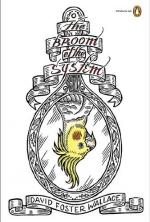|
This section contains 928 words (approx. 4 pages at 300 words per page) |

|
Although David Foster Wallace is a staggeringly imaginative and erudite novelist, essayist, and cultural critic with wideranging interests and often profound, sober convictions, his fiction has converged on a very few, specific, though important, concerns. Typical, perhaps, of both an English and philosophy major (Amherst College during the mid-eighties), Wallace has infused these two disciplines into his fiction in unique ways. What is particularly invigorating and forms the foundation between the marriage of these disciplines in Wallace's work is his unflagging belief that literature is a "living transaction between humans." He made this remark in an interview with Larry McCaffery for the Review of Contemporary Fiction, noting that the contemporary artist, or novelist, must endeavor to touch, or "converse" with, the reader— without pretension. In interviews Wallace repeatedly returns to his guiding aesthetic; as he told McCaffery: "real art-fiction's job is to aggravate [a] sense...
|
This section contains 928 words (approx. 4 pages at 300 words per page) |

|




